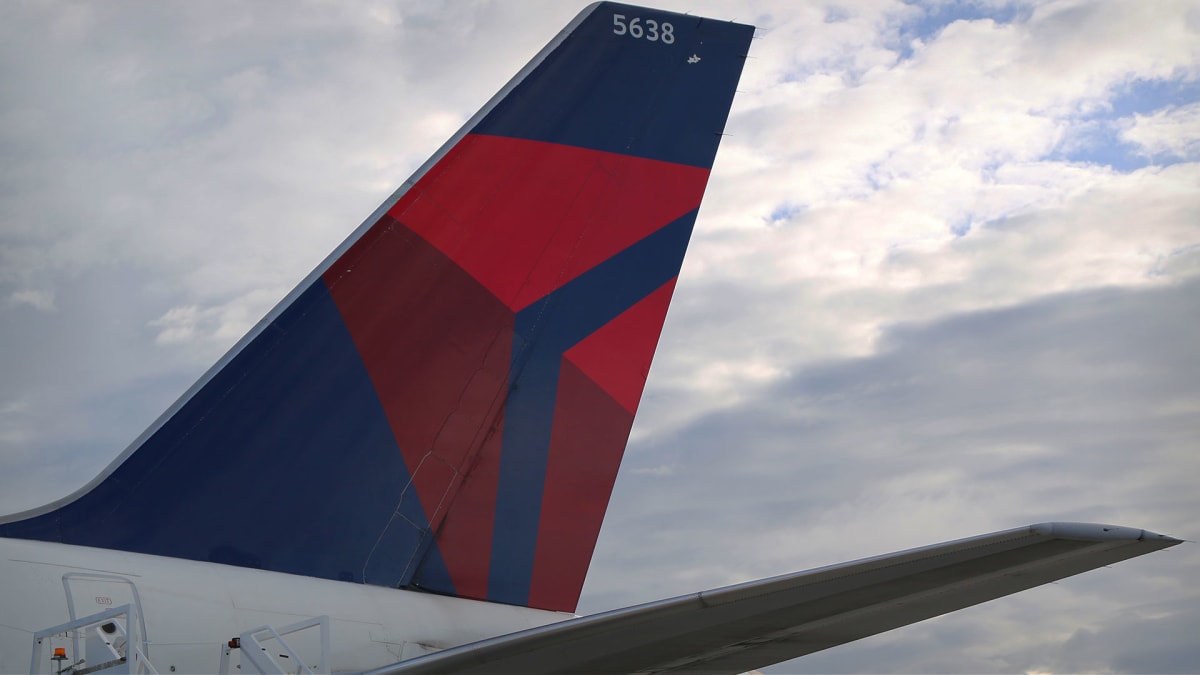
On Jan. 11, the Federal Aviation Administration (FAA) imposed a nationwide ground stop, owing to a computer error that forced a 90-minute halt to all U.S. departing flights.
“Notice to Air Missions system, known as NOTAM, had failed at around 4:18 am Eastern time, preventing it from updating pilots and flight personnel from receiving updates on conditions, facility changes, hazards and procedures," the FAA later clarified.
In total, more than 10,000 U.S. flights were delayed and 1,300 were canceled by that Wednesday afternoon, and airlines such as Southwest Airlines (LUV), United Airlines (UAL), Delta Air Lines (DAL) and American Airlines (AAL) reported 40% or more of their flights were delayed or canceled that day.
As the FAA worked to repair the system, CNBC reported the issue was due to a “corrupted system file,” and that NOTAM “does have a backup, but both the primary and backup systems had been fed by the bad data, according to a person familiar with the matter.”
Airlines returned to normal by Jan. 12, and several airlines waived change fees and fare differences for anyone impacted by the outage.
But after the mass cancellations and public embarrassment that Southwest went through over the holidays, the industry and travelers are all a bit on edge, and everyone wants answers.
Congress Calls For More Oversight
After the Jan. 11 flight stop, congress announced plans to investigate the cause of the outage. Shortly after the delay, Senate Commerce Committee Chair Maria Cantwell (D-Washington) said the panel "will be looking into what caused this outage and how redundancy plays a role in preventing future outages. The public needs a resilient air transportation system."
The health of our nation’s aviation system is a bipartisan concern, as House Transportation Committee Chair Sam Graves (R-Missouri) said the ground stop "highlights a huge vulnerability in our air transportation system,” per Reuters.
"Just as Southwest’s widespread disruption just a few weeks ago was inexcusable, so too is the DOT’s and FAA’s failure to properly maintain and operate the air traffic control system," Graves said.
The FAA has been without a permanent administrator since March of last year, as the Senate has yet to hold a hearing on President Joe Biden's pick to head the agency, Denver International Airport Chief Executive Phil Washington, who was renominated by Biden last week.
FAA is required by law to submit reports to congress; its most recent authorization is set to expire on Sept. 30 of this year.
Thanks to the looming threat of a possible government shutdown, as the Republican-controlled House of Representatives has signaled it wants a number of large-scale (and according to nearly everyone, unrealistic) spending cuts in exchange for funding the government, there is a widespread worry that the FAA might be one several agencies that goes neglected.
(While most political analysts think it's unlikely the government will shut down or go unfunded this year, the fact that the possibility isn’t a hard zero is nonetheless unnerving to many.)

PAULO NUNES DOS SANTOS/AFP via Getty Images
Delta’s CEO Weighs In
Delta CEO Ed Bastian has now publicly opined on the matter, and is calling on Congress to not only investigate, but to take the actions necessary to make sure the FAA can function properly.
"It's very clear that there has to be a call to action amongst our political leaders, Congress and the White House, to fund the FAA for the resources to do the job," he said during Delta’s recent Q4 earnings call.
Additionally, he called the FAA’s tools and technology outdated, and said the agency is both underfunded and understaffed. He has called for a change in the funding process, so that it is automatically funded and not subject to political debates.
"There's no question that investment in a modernized air traffic control system would provide more efficiencies as well as growth," said Bastian.







